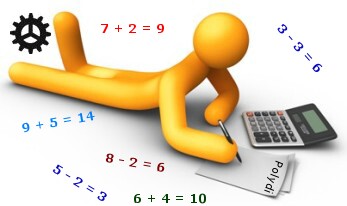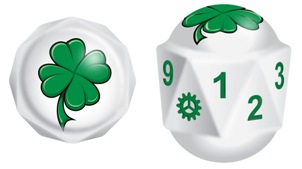Although Polydi™ is a TOY. It is also an
EDUCATIONAL TOOL.
Many educators would argue
that one of the best ways to learn arithmetic facts is an instructional
practice called drill & practice. The concept being that repetition of
small facts will help with memorization. Our philosophy is that Polydi
math games help promote the acquisition of knowledge through repetitive
practice. The more often a child practices his or her basic math skills
the more fact retention will be achieved. Simply put, if you practice
addition, you will learn addition. If you practice subtraction, you will
learn subtraction. It is really that simple…
What will your child or student say if you ask them, “would you like to do your home work or would you like to play a game?” It is safe to assume that most children prefer to play a game if given the choice.
In an effort to have children “practice” math facts more often, we have determined that it may be best that they do NOT realize that they are actually studying. For some reason, kids never appear to get tired of playing. However, after a few minutes they get extremely tired of utilizing workbooks or flash cards.
Polydi has taken the simple concept of repetition based learning and has transformed drill & practice techniques into a FUN adventure.
Keeping with the philosophy that we do not want our students or children being burdened with the thought that they are actually “studying”, we have created two sections on the site to summarize the game rules. One section is for the youngsters and one section (this section) for parents and teachers.
In the children’s section, we will tone back the comments regarding “math”, “education”, “scholarships”, “learning”, etc. In the kids section, we will talk more about fun, jokes, and other silly things.
Below you will find links to descriptions for some of our games. We suggest you investigate the "math games" section first. Learn a game or two and then teach your children how to play. Depending on your child’s age, it may be challenging for them to understand all of the rules without your help. When you explain the rules, try NOT to focus on the fact that they are using “addition” or “subtraction”. Describe to them that they are gaining or losing “strength points”. They will have fun if they are trying to gain “power” for their Polydi... Don't make them feel like they are studying math. Keep it fun!!! Also, keep in mind we have "many" games. Start by focusing on one game. If you try too many levels, it may get confusing. Master one game before moving onto the next.
|
 |
 You don't need to be lucky to do well in math... |
If you find these games to be fun, educational, or simply interesting, please tell other parents & teachers about Polydi.
Home
About Us
Game
Rules Toy
Collection
Contact Us
Safety
Legal Statement
Licensing
Opportunities
Promotional Gift Ideas
Copyright 2012-2015 Polydi. All
Rights Reserved.
Polydi™ is Patented.